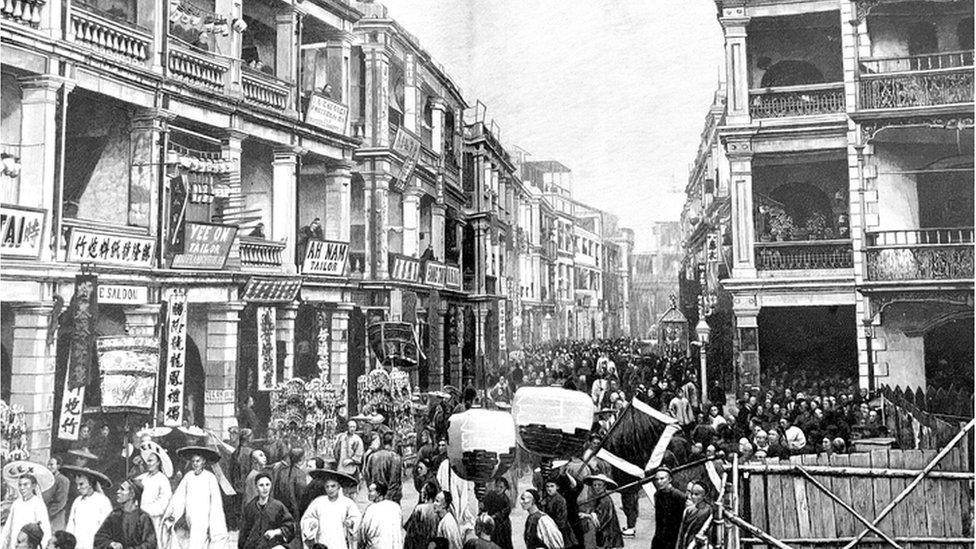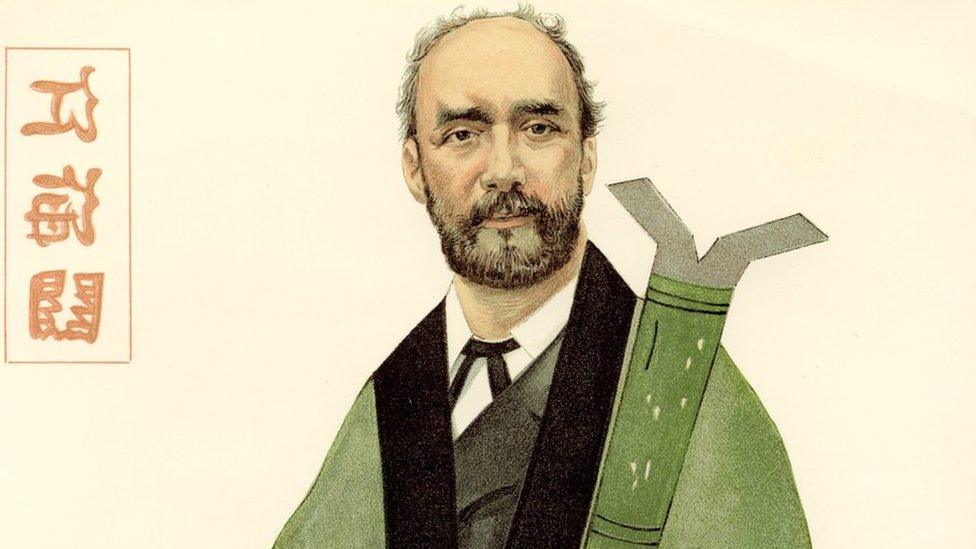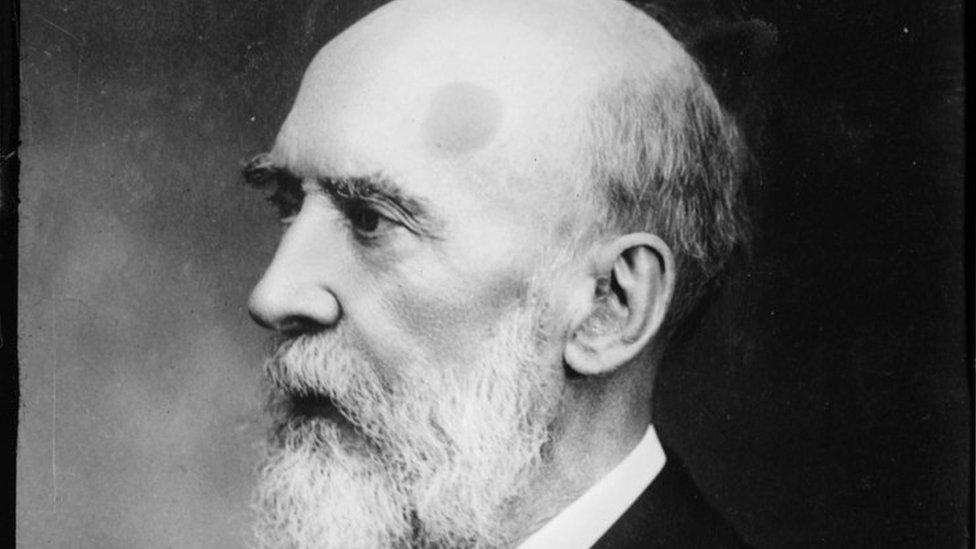Robert Hart: Customs man 'helped modernise China'
- Published

Hong Kong was a British colony when Robert Hart arrived
At the age of 19, Robert Hart set sail for Hong Kong with no knowledge of the languages of China and no diplomatic experience.
By the end of the 19th Century the Portadown native was considered by some "the most important westerner in China" and helped drive the county's modernisation as he was involved with setting up its customs service, navy, lighthouses and postal service.
He spent almost his whole adult life in China, fathered three legitimate and three illegitimate children and fought to balance his family life with his career.
He was based in the country during a period when it was dominated by Western imperial powers, and there is still some controversy over his legacy, despite a change in Chinese attitudes to him in recent years.
But just 100 years after his death, he has been all but forgotten about in his home town in County Armagh.
'Chinese Customs Hart'
A new project launched with a £10,000 grant from the National Lottery via the Heritage Lottery Fund hopes to change that.
Craigavon Historical Society has begun working with children at Sir Robert Hart Memorial Primary School in Portadown.
It's hoped they will not only learn more about a man who had a monumental impact on Qing dynasty China and whose legacy continues to be felt there, but will also discover more about modern China and Chinese culture.

"Chinese Customs Hart" was caricatured in Vanity Fair in 1894
David Weir from the historical society describes him as a fascinating figure who had a genuine love for China that might seem at odds with some other administrators of the British Empire.
"He learned the language within three years, he became a fluent speaker and writer.
"During the [anti-foreign and anti-colonial] Boxer Rebellion he wrote a book and in this book he sympathises with the Boxers and predicts China's growth as a modern power.
"He understood where China was going."
Turbulent private life
Born in Portadown in 1835 to a middle-class family, the young Robert Hart grew up in the town and later in Lisburn before enrolling at the newly-founded Queen's College in Belfast, now Queen's University.
At the age of 19, he accepted a job in Britain's Chinese Consular Service and set sail for Hong Kong, which by that stage was under British rule.
He then moved to work in the port city of Ningbo and later Canton (now known as Guangzhou), where his talents were quickly spotted by China's ruling Qing dynasty.
He then became Inspector-General of the Chinese Imperial Maritime Customs Service, working for the Chinese government rather than the British government, and held the post for 45 years.
During that time he became one of the driving forces behind China's modernisation, helping to establish the postal service, lighthouses, the imperial navy and meteorological service among other things.
Dr Weipin Tsai, a senior lecturer in modern Chinese history at Royal Holloway University in London, who is writing a book about Hart, says he had a genuine interest in China separate to other imperial administrators of the era.
"A lot of the time British diplomats in China could not understand why he would go so far to defend Chinese interests.
"Some even saw him as a traitor.
"In recent years academics have started to pay attention to his disputes with British diplomats. In China at the moment people are interested in seeing how he defended Chinese interests."
But alongside his achievements he had a turbulent private life.

Sir Robert Hart spent almost all of his life in China
"One of the reasons he gave for going to China was that he grew up in a strict Methodist family," said Mr Weir.
"When he was at Queen's his strict life fell by the wayside.
"He wanted to become a minister, but he couldn't have the discipline in his private life, so he went to China to get away from the temptations."
If that was what he was hoping for, it didn't work. In 1857 he began a relationship with a Chinese woman, Ayou, and went on to have three children with her.
Their relationship, constrained by the customs of the time, wasn't to last and in 1866 he arrived back in Britain on leave and married an 18-year-old, Hester Bredon, in Dublin.
He had three more children with Hester but their relationship was far from perfect and she and the children returned to Britain permanently in 1882, leaving Robert dedicated to his career.
Contested legacy
Mr Weir hopes the project with children at Sir Robert Hart Memorial Primary School, which will culminate in a documentary film created by pupils, will spark a renewed interest in Robert's life.

Pupils have been learning about Chinese food as part of the project
Pupils will learn about Chinese culture, including food and fashion, as well as what life might have been like for a 19-year-old arriving in Hong Kong with barely any knowledge of the country where he was to spend the rest of his life.
In China, Hart is more well known but his legacy there is contested.
"Up until recently he was on the curriculum," Mr Weir explained.
"The period when he was in China is known as the great Chinese shame, a 100-year period when the country was being dominated by foreign powers.
"He is seen as a foreigner coming in and ordering Chinese people about. So really since the Communist revolution he has very much been trashed as an agent of imperialism and a symbol of China's embarrassment.
"But scholars are now coming around to what he did and not just seeing him as a foreign devil."
Dr Tsai agrees that how Hart is perceived in China has undergone a transformation in recent years.
"More historians and people who are interested in modern Chinese history started to see his contributions to China.
"People have started to see him from different perspectives and be more objective to see what he did for China."